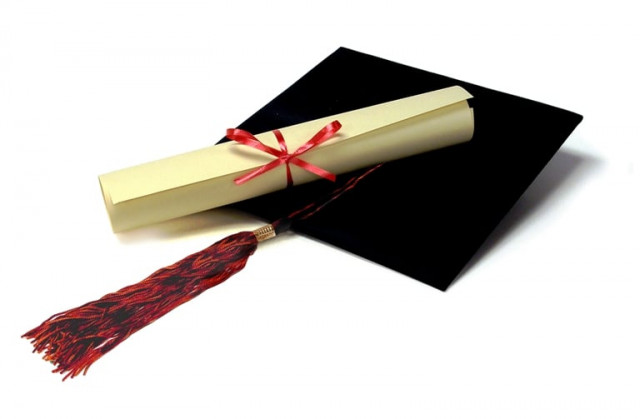July meeting may slash 2-year degrees
KU delays academic council meeting in anticipation of HEC-VC caucus next month

A change in Higher Education Commission’s has triggered a possibility hinting at immediate conversion of two-year associate degree into four-year Bachelors of Studies (BS) programmes, across the board. The move, which will also come into effect in Sindh, was being mulled over for almost a year.
The Higher Education Commission of Pakistan (HEC), has sought the universities’ views on the matter; asking degree-awarding institutes to also share all probable concerns that might emerge from the move.
In regard to which, a meeting of the vice-chancellors has been scheduled to take place during the first week of July, where public-sector universities across Pakistan will share their thoughts on the new policy.
“We have delayed our Academic Council meeting for this consultation,” said Karachi University Vice Chancellor Prof Dr Khalid Iraqi. Explaining the decision, he told that the delay is so that if there are any changes in the decision after the meeting with HEC, then the meeting of the academic council will be held in the same context.
On the other hand, universities in Sindh, including Karachi University, had interpreted the two-year associate degree as a vocational training programme in technical education institutes, instead of a traditional university-level academic programme.
This was reflected in opinions the universities had sent to the HEC in the regard. Where they had maintained that such programmes are not conducted at the university level but in the style of certificate courses and diplomas.
The opinion forwarded by Karachi University and a few others, states that the undergraduate and graduate programmes of the universities are purely academic in nature. Associate degrees do not fit into the academic environment or context of universities, they conveyed to the HEC.
In addition to that, the universities had also expressed that a two-year associate’s degree is unclear. “Will students automatically be eligible to enroll in a four-year bachelor’s prgramme at a university after the two-year degree or will they have to take deficiency courses?” the universities inquired.
The opinion submitted by Karachi University in this regard also revealed that the two-year associate degree in teacher education in various universities of the country has not yielded impressive results and there is no room for its students in the job market.
In light of which, it was opined that the associate degree model is unsuitable for regulations of Arts, Humanities, Social Sciences, Physics and Biological Sciences. Similarly, most colleges require more faculty and resources for a two-year associate and a four-year bachelor’s in all regulations, the university alleged.
The opinion further said that the old traditional graduation system will be abolished and the implementation of the new undergraduate policy will cause severe difficulties to the universities and colleges, in what’s being considered a system overhaul.
The biggest concern is that the policy will significantly reduce enrolment. Generally, universities enrol 60,000 to 70,000 students. Other than that, six-week internships for the students in a new programme is also a huge challenge. Universities worry that they will also have to arrange six to 6,000 internships for its students and 30,000 internships for college students each semester.
The HEC was told that the universities were ready for a four-year degree. However, redesigning the curriculum in this regard requires considerable time, considering that the two-year associate’s degree is more general than academic.
Read More: Sindh HEC moves to end two-year degree programmes
The solution given by Karachi University in this regard states that the traditional programme should be wiped out in phases. HEC should facilitate the universities in this regard and start awareness campaigns in colleges.
Karachi University has said in its opinion that the new undergraduate policy can start out fewer rules, so that it’s easier to transition. The rest of the regulations should continue in the traditional programme. Students should be allowed to choose between the 16-year or 14-year BS programmes. “Students who do not wish to go abroad do not need a 16-year graduation, while the concerned institution- The Higher Education Commission of Pakistan-should certify the degree of both types of programmes,” opined Karachi University.
Published in The Express Tribune, June 30th, 2021.



















COMMENTS
Comments are moderated and generally will be posted if they are on-topic and not abusive.
For more information, please see our Comments FAQ